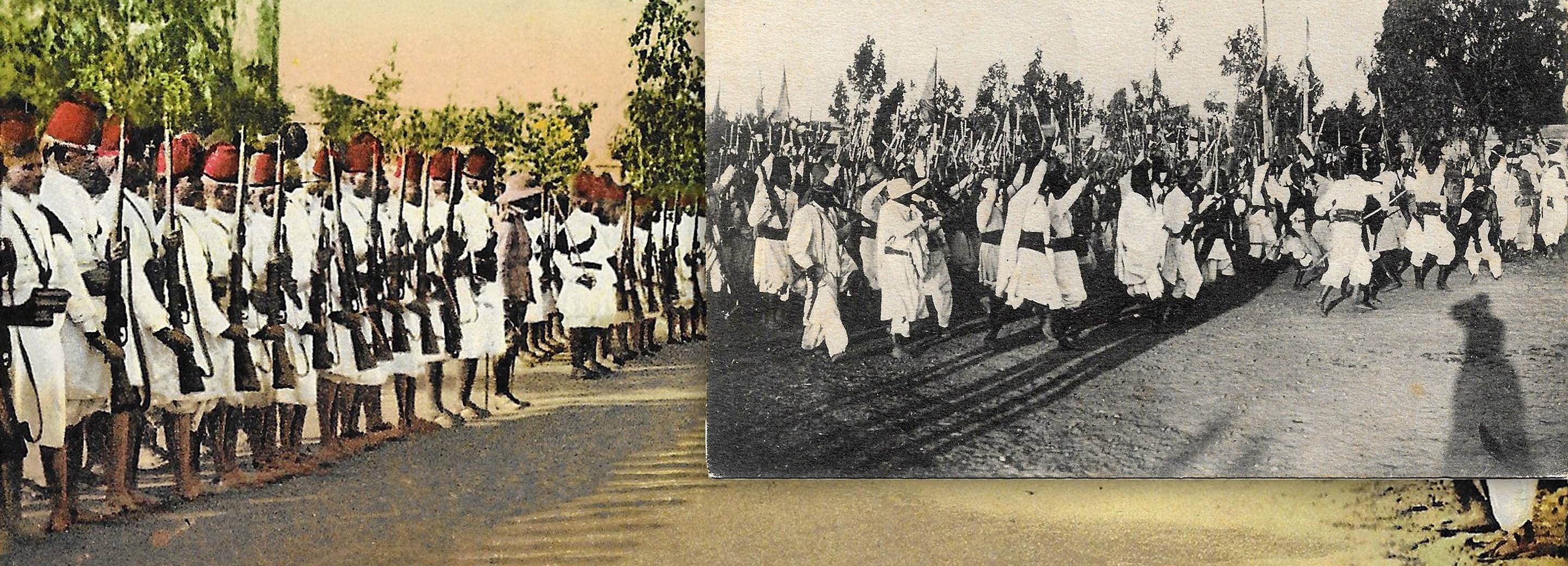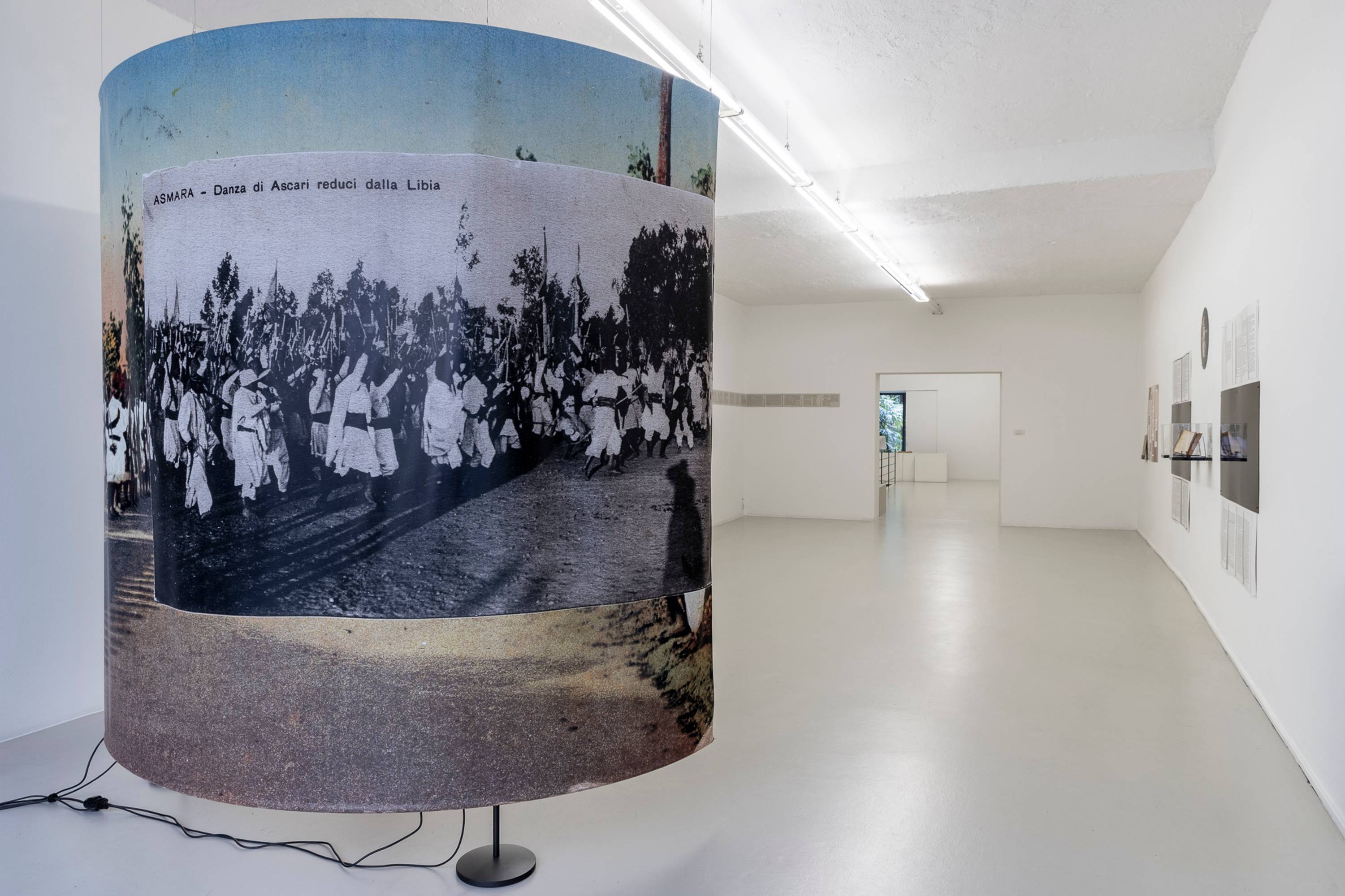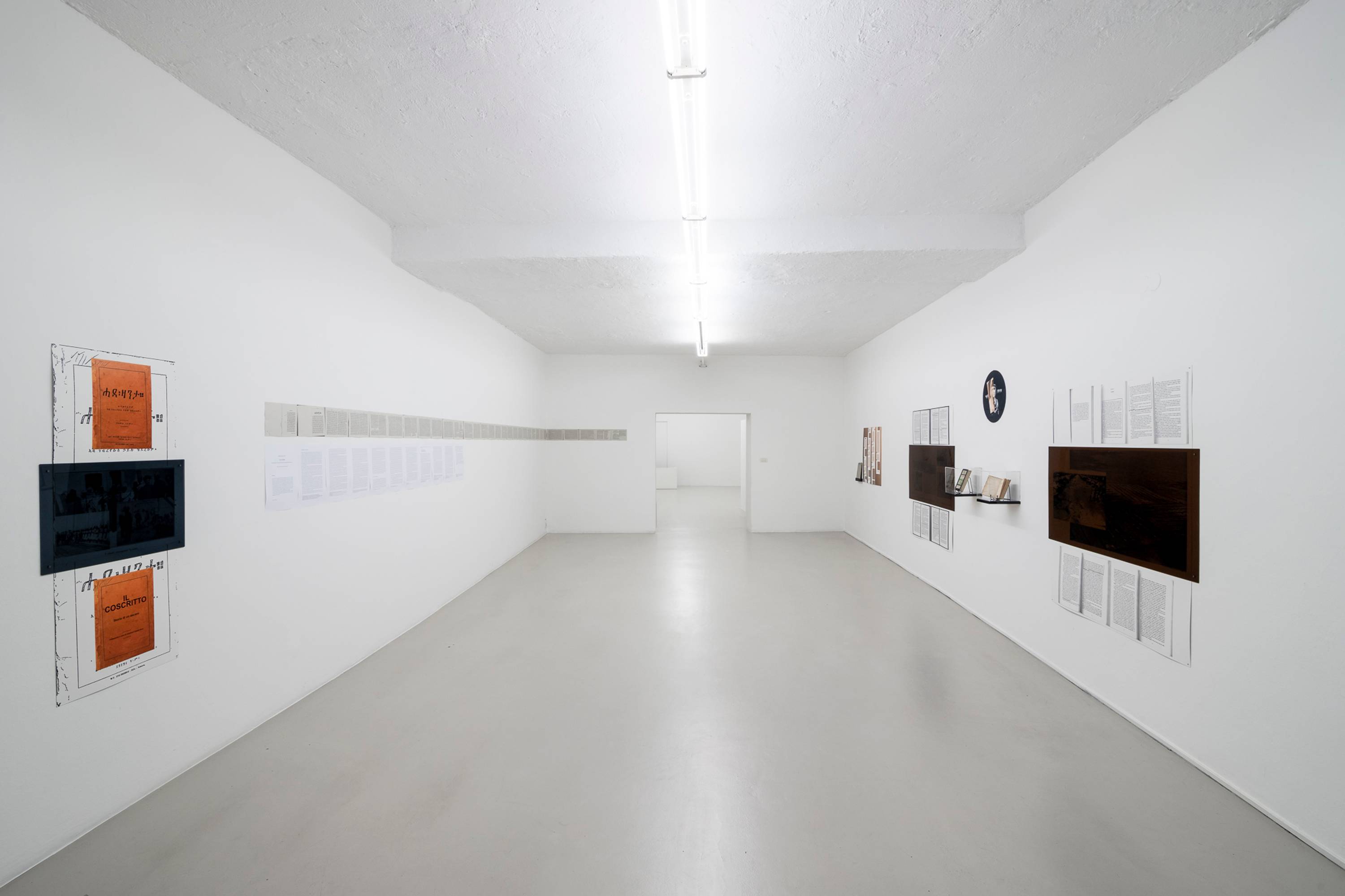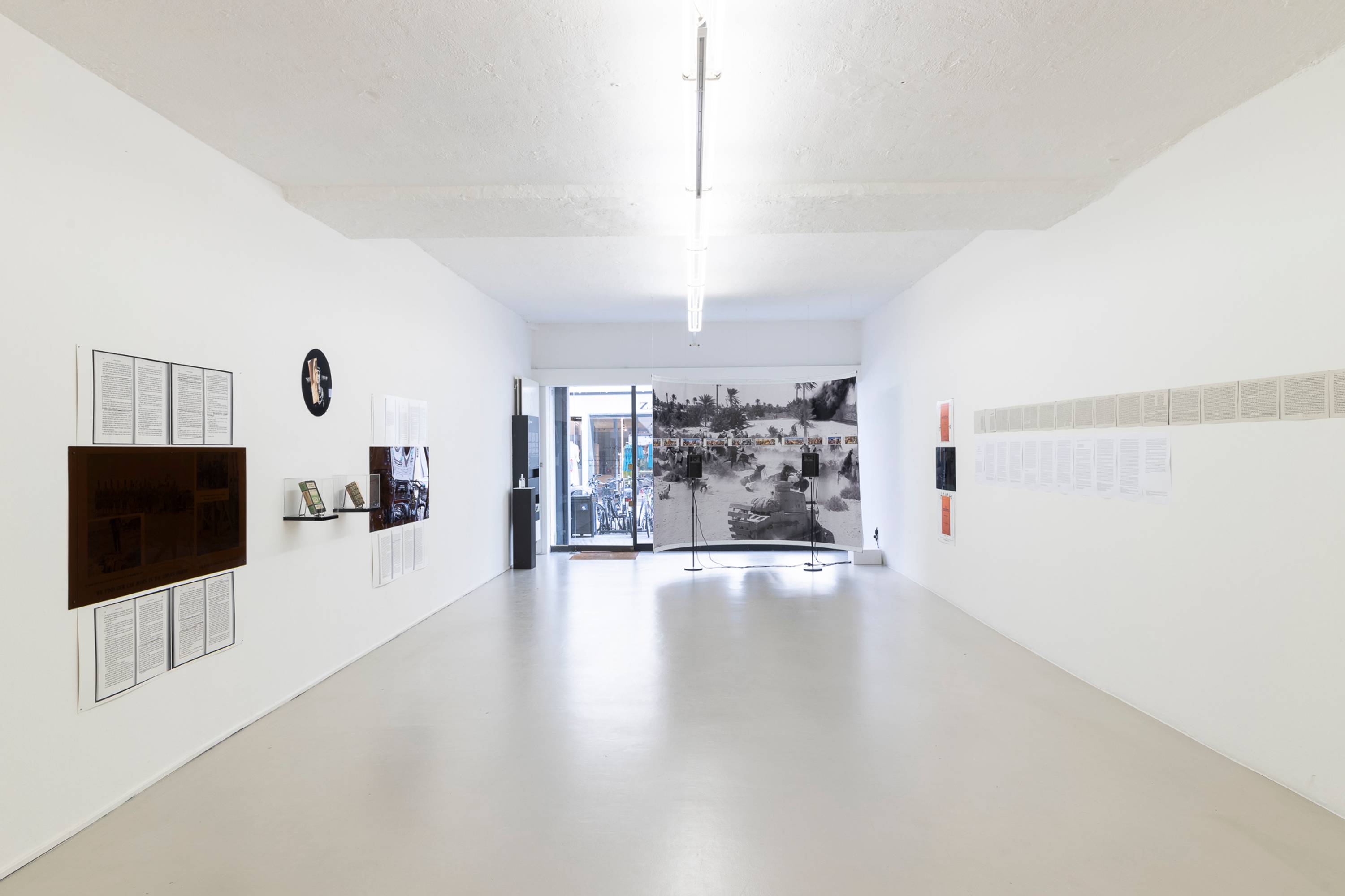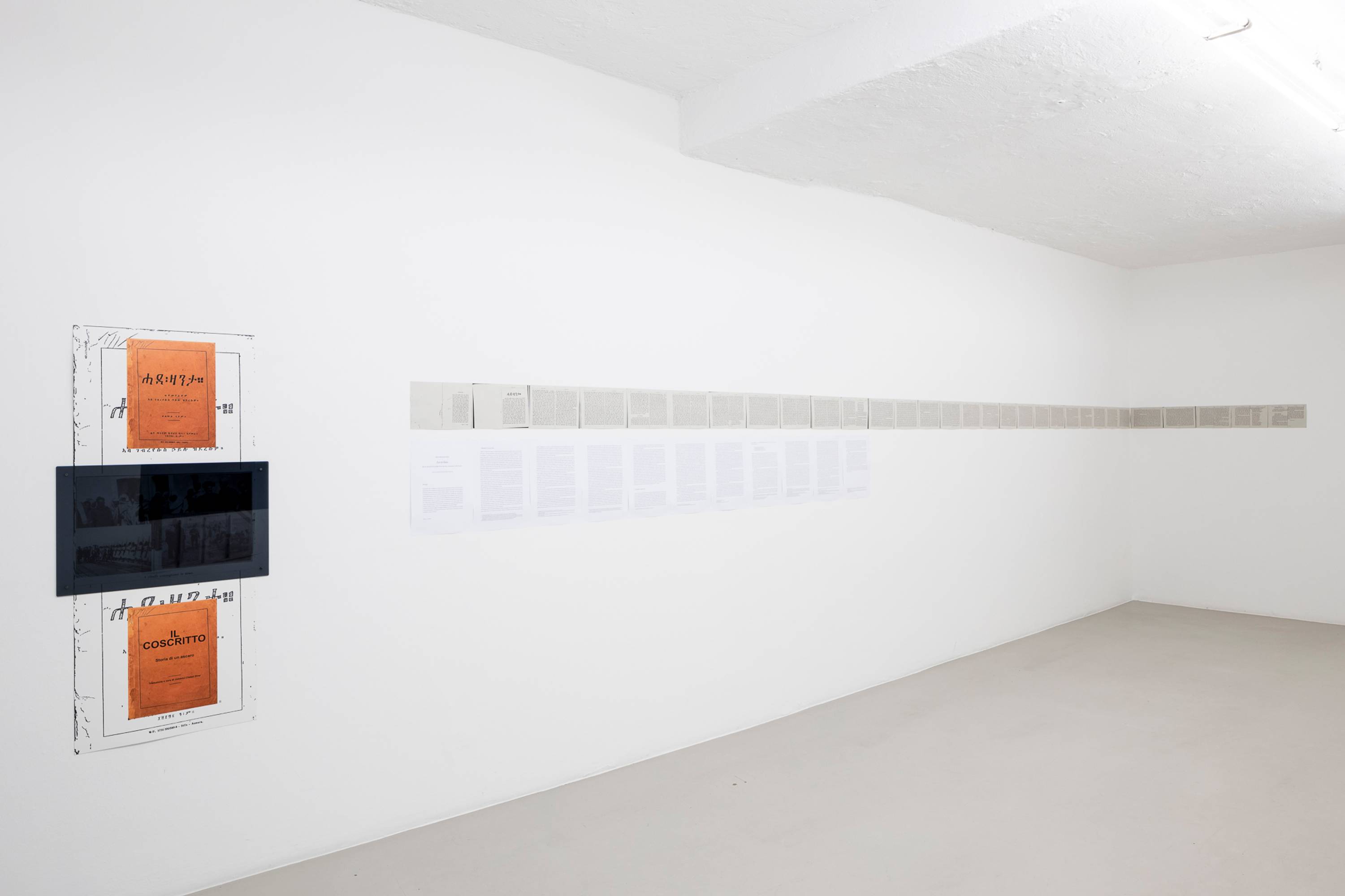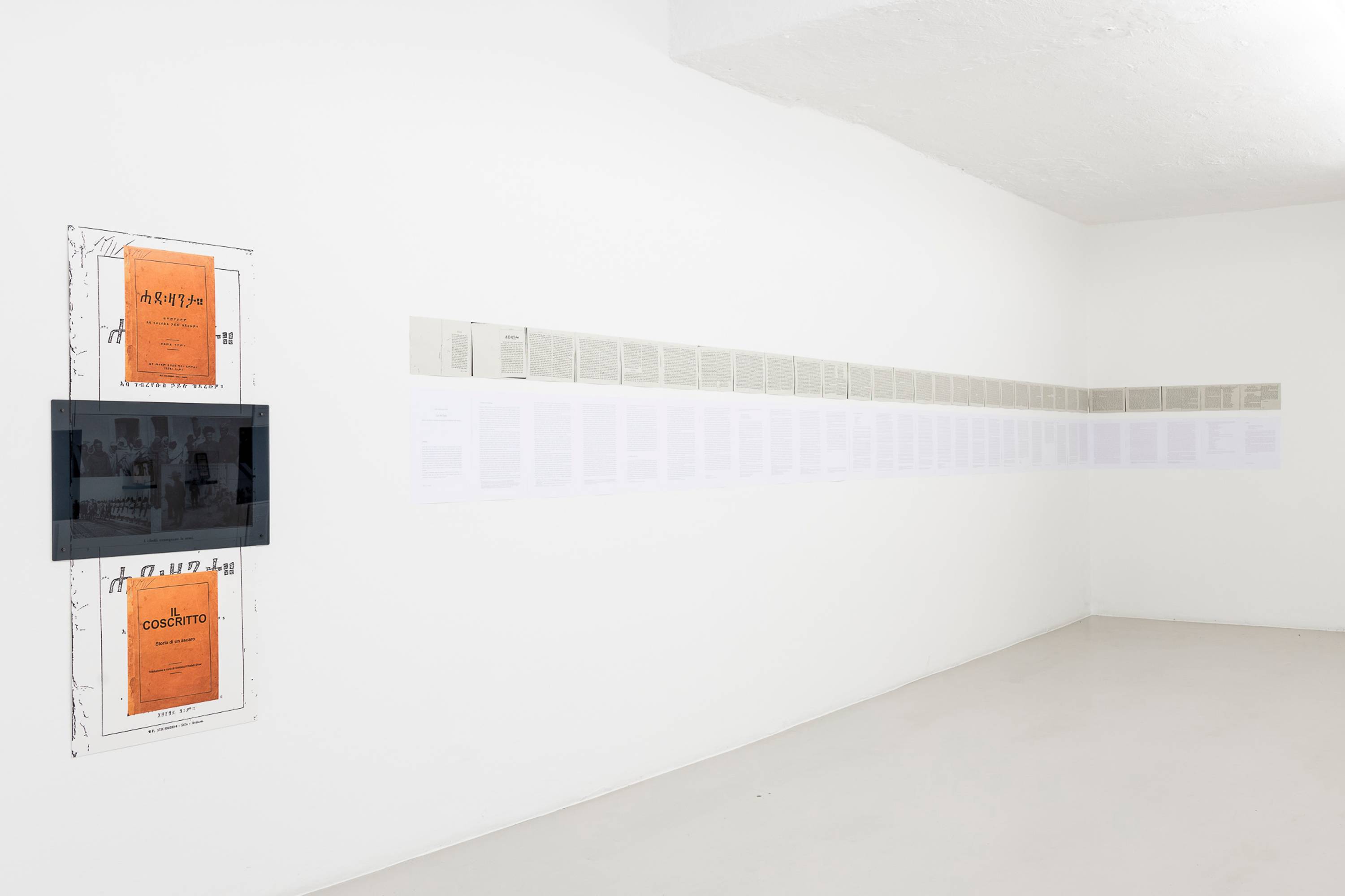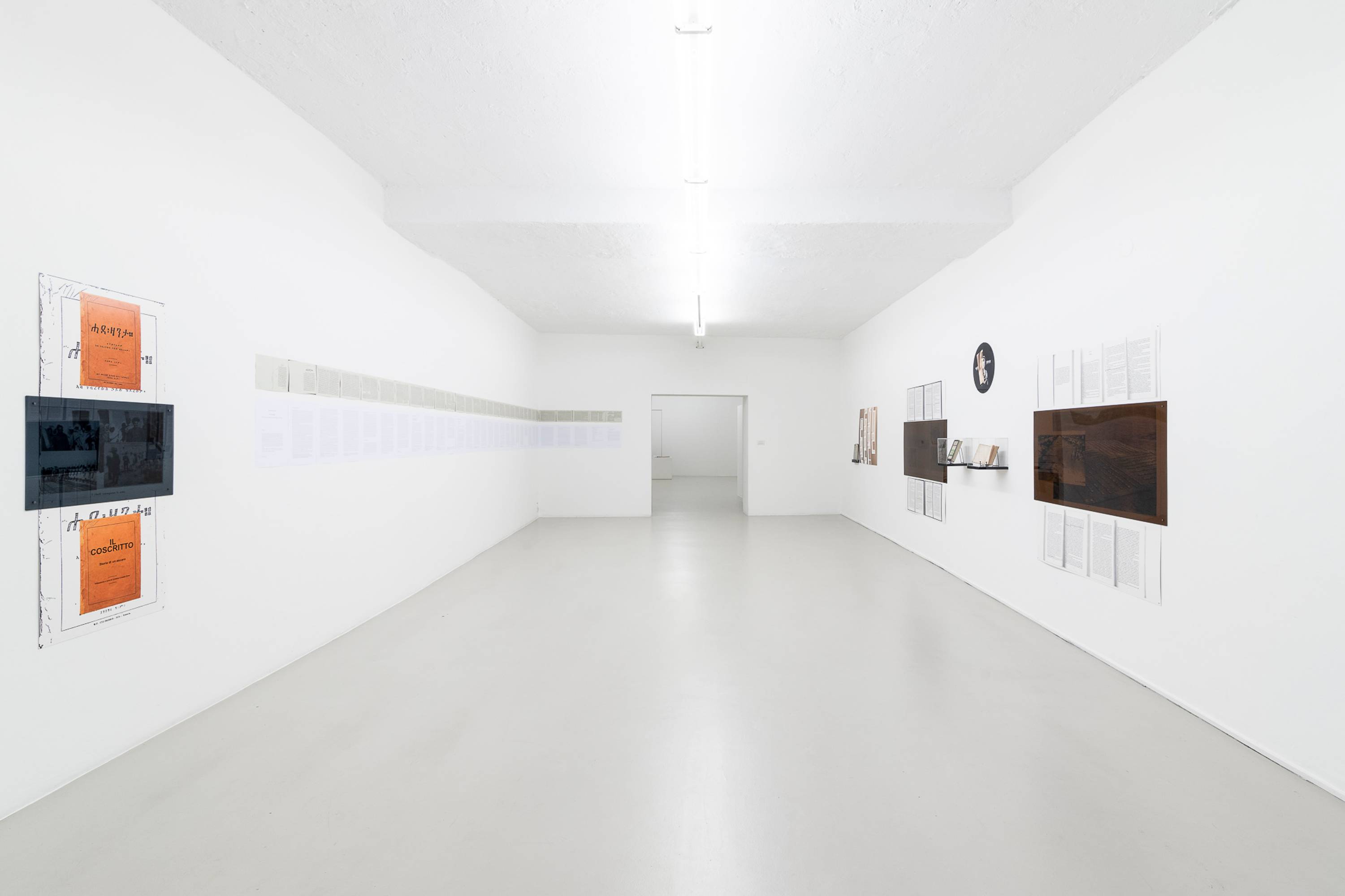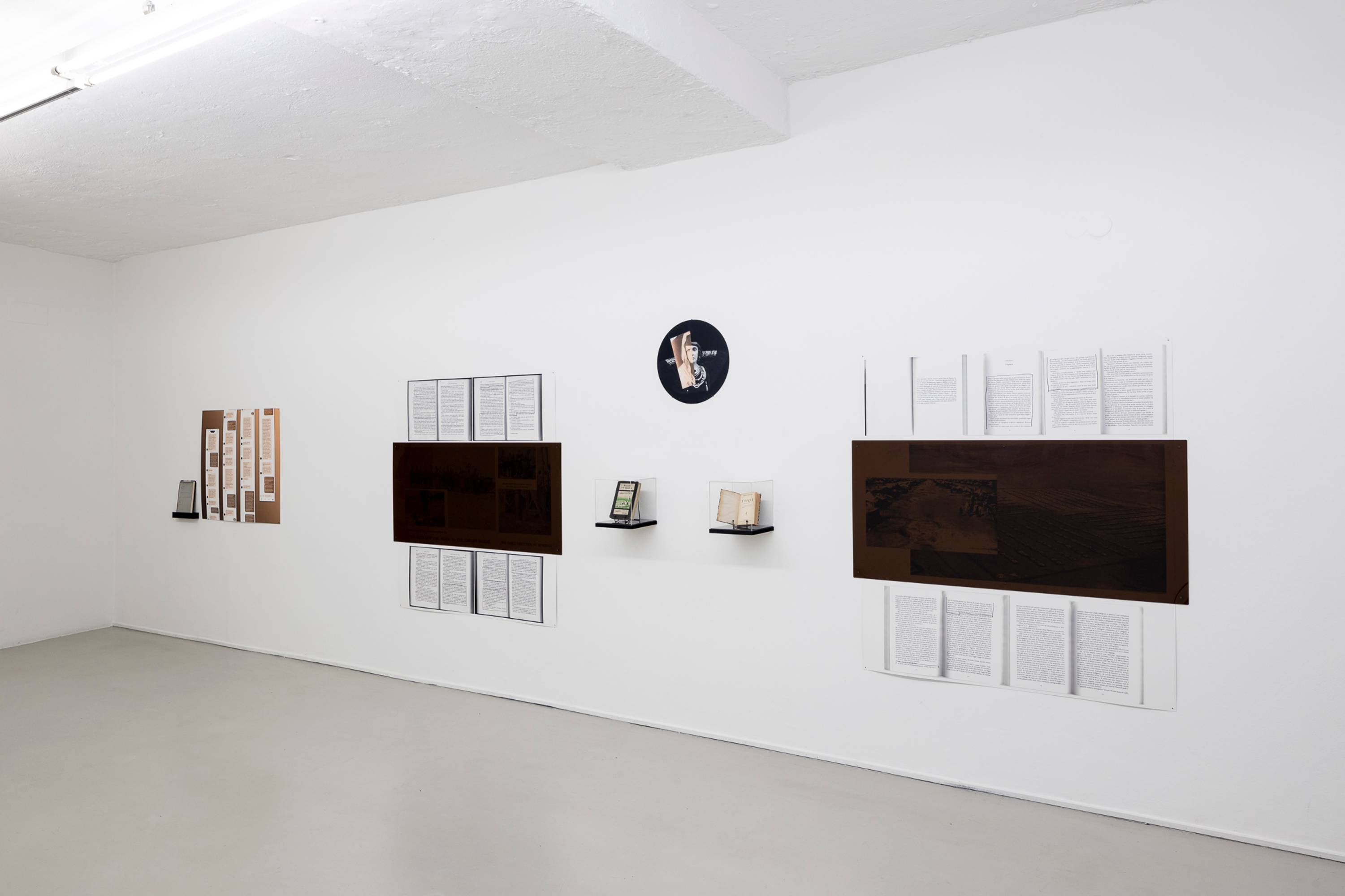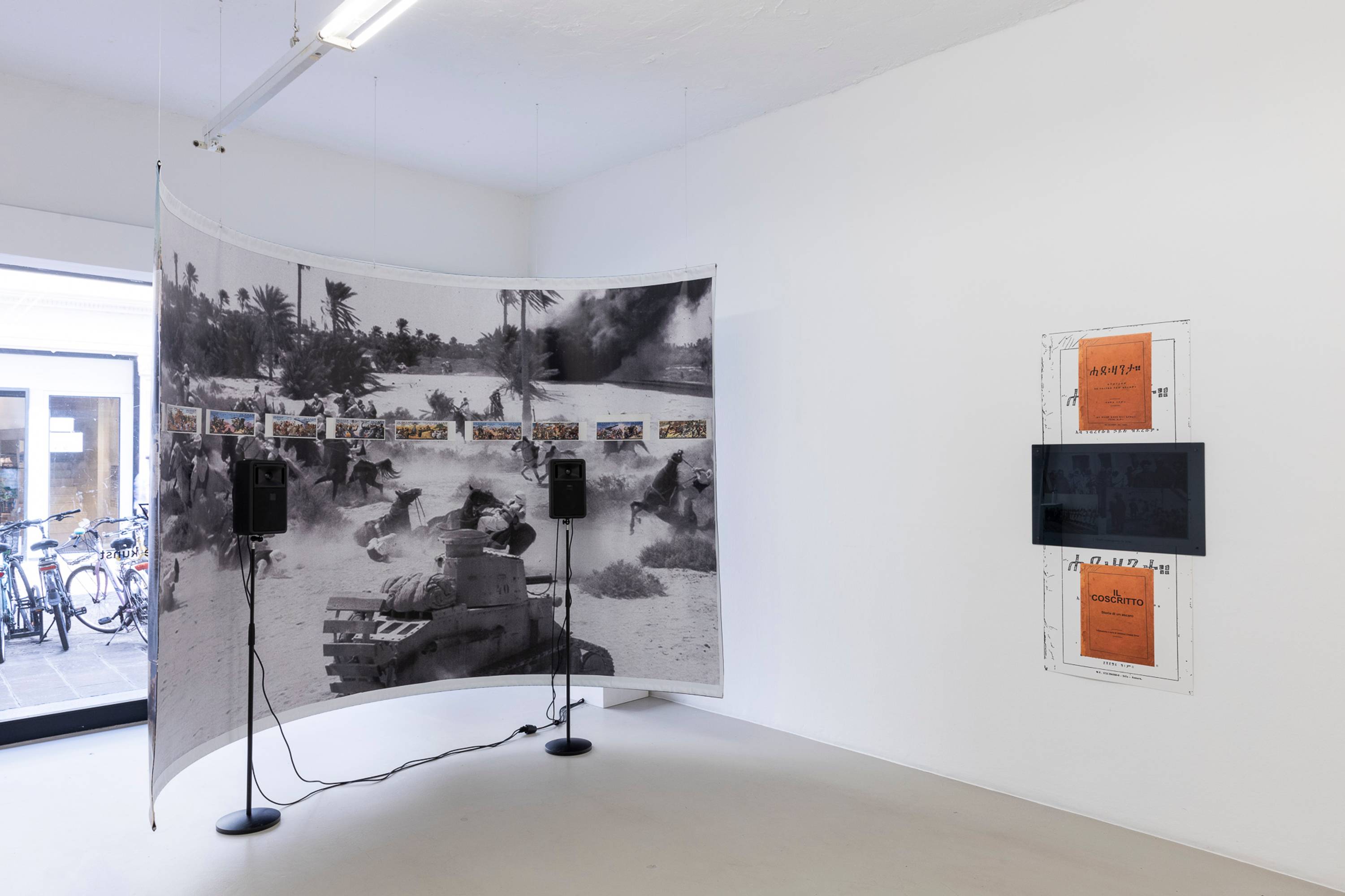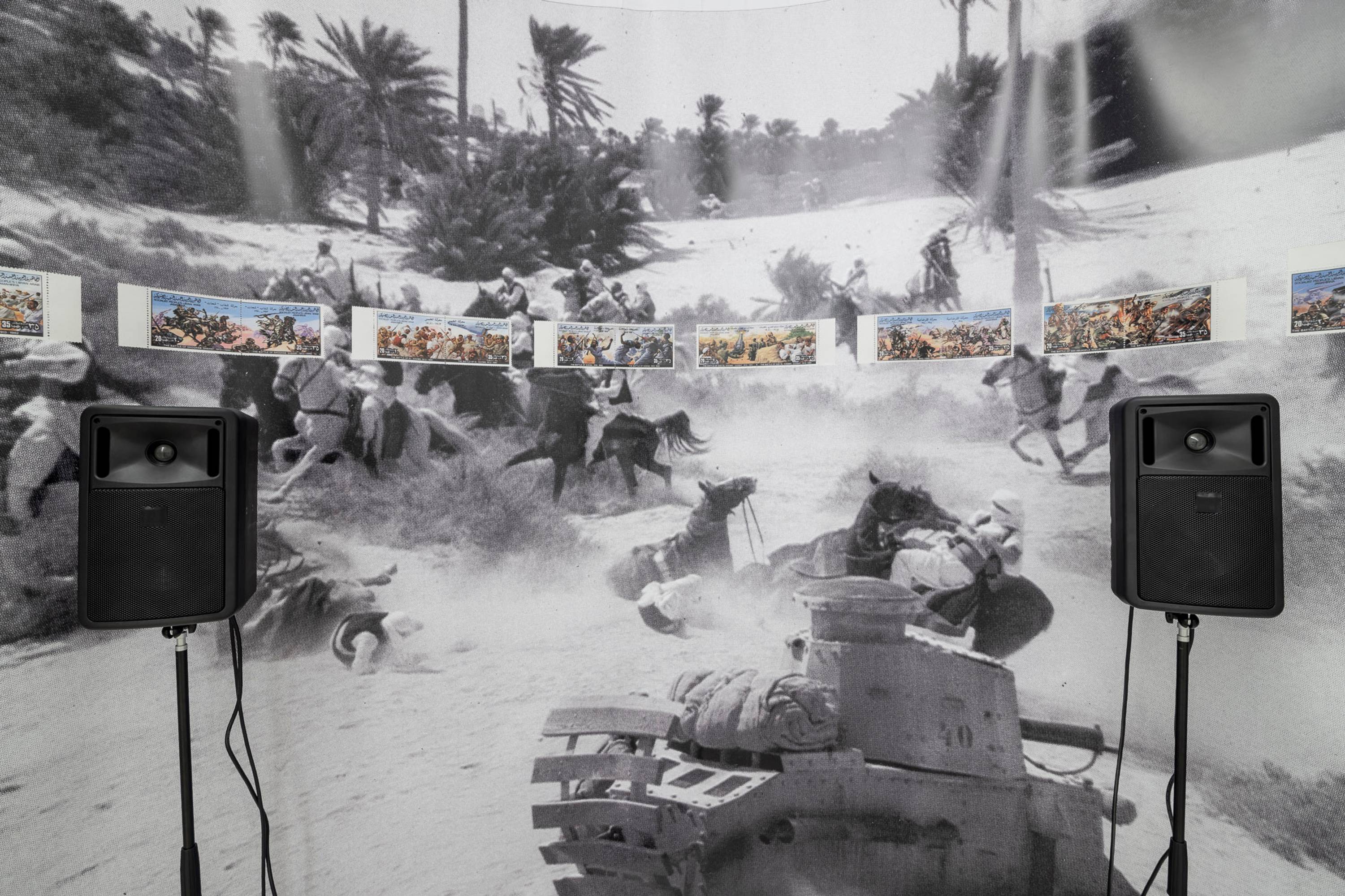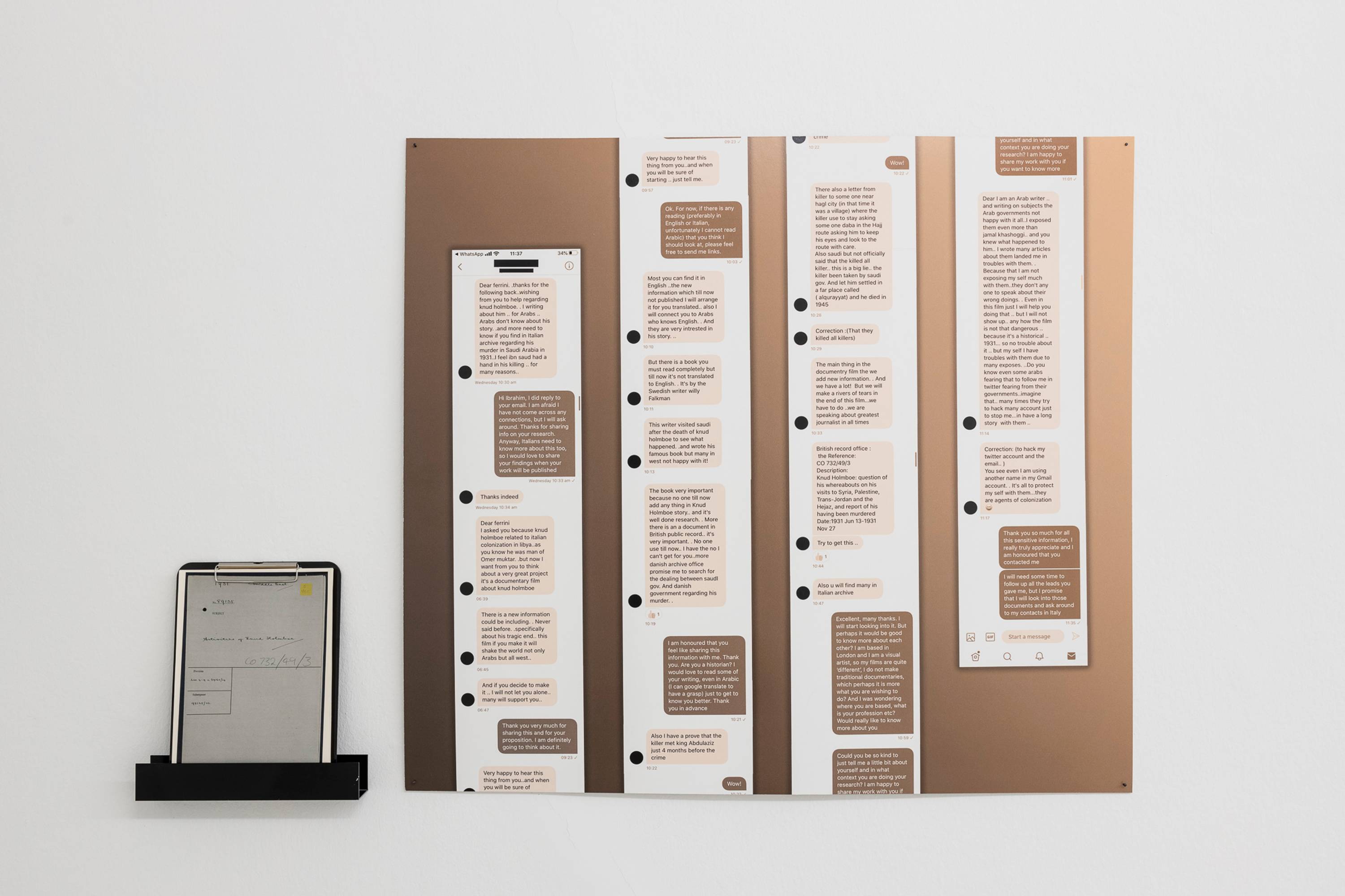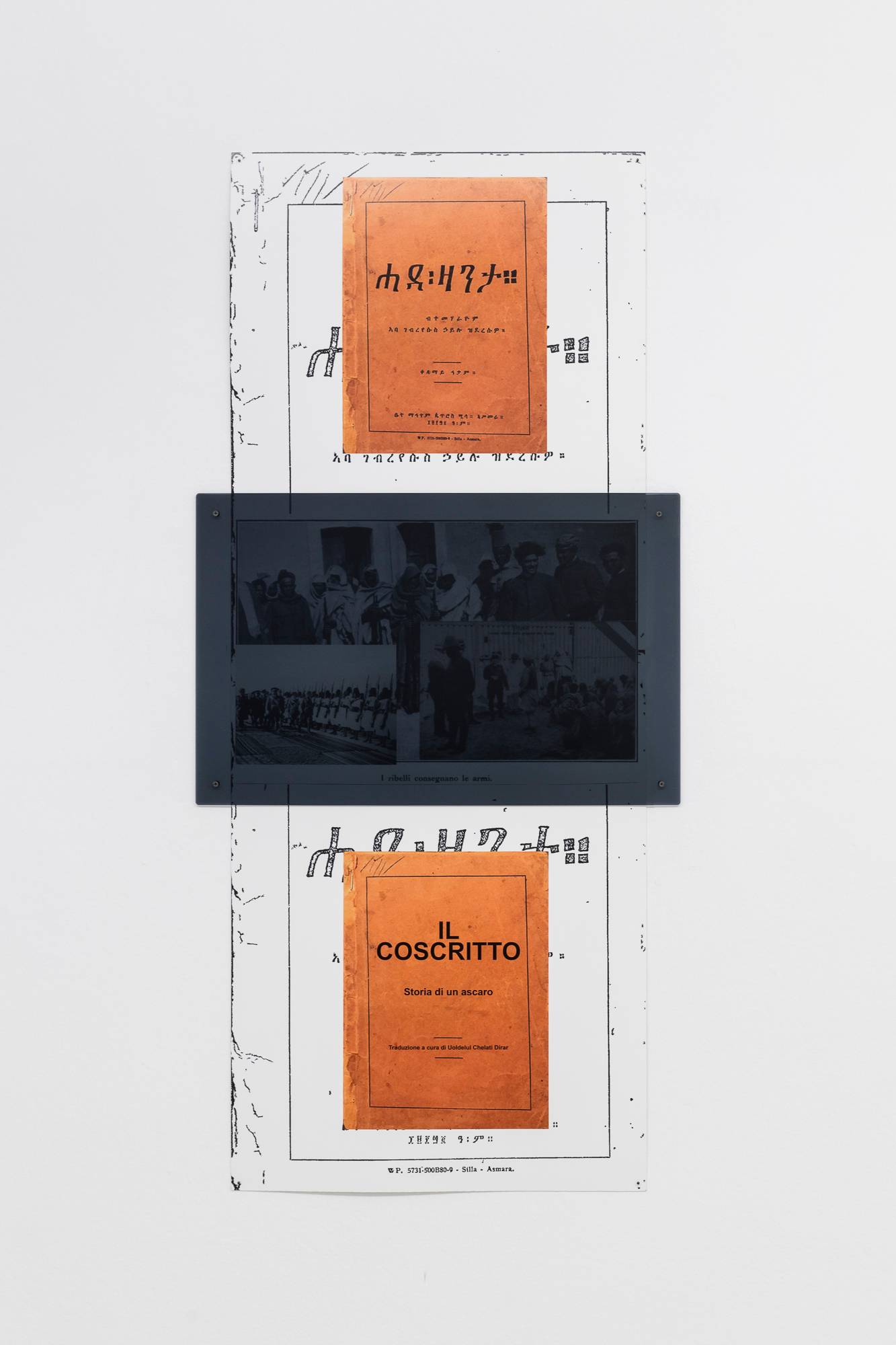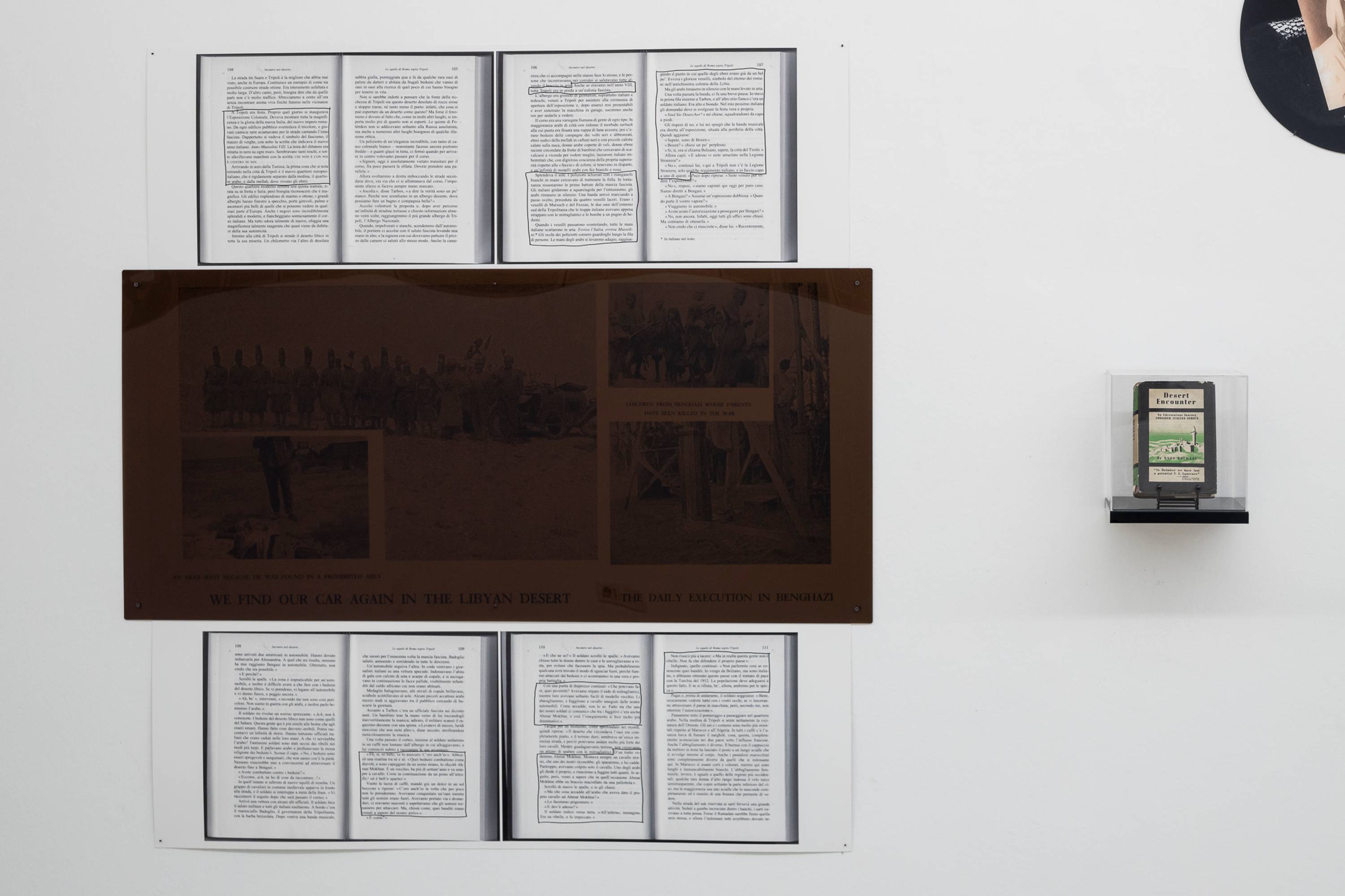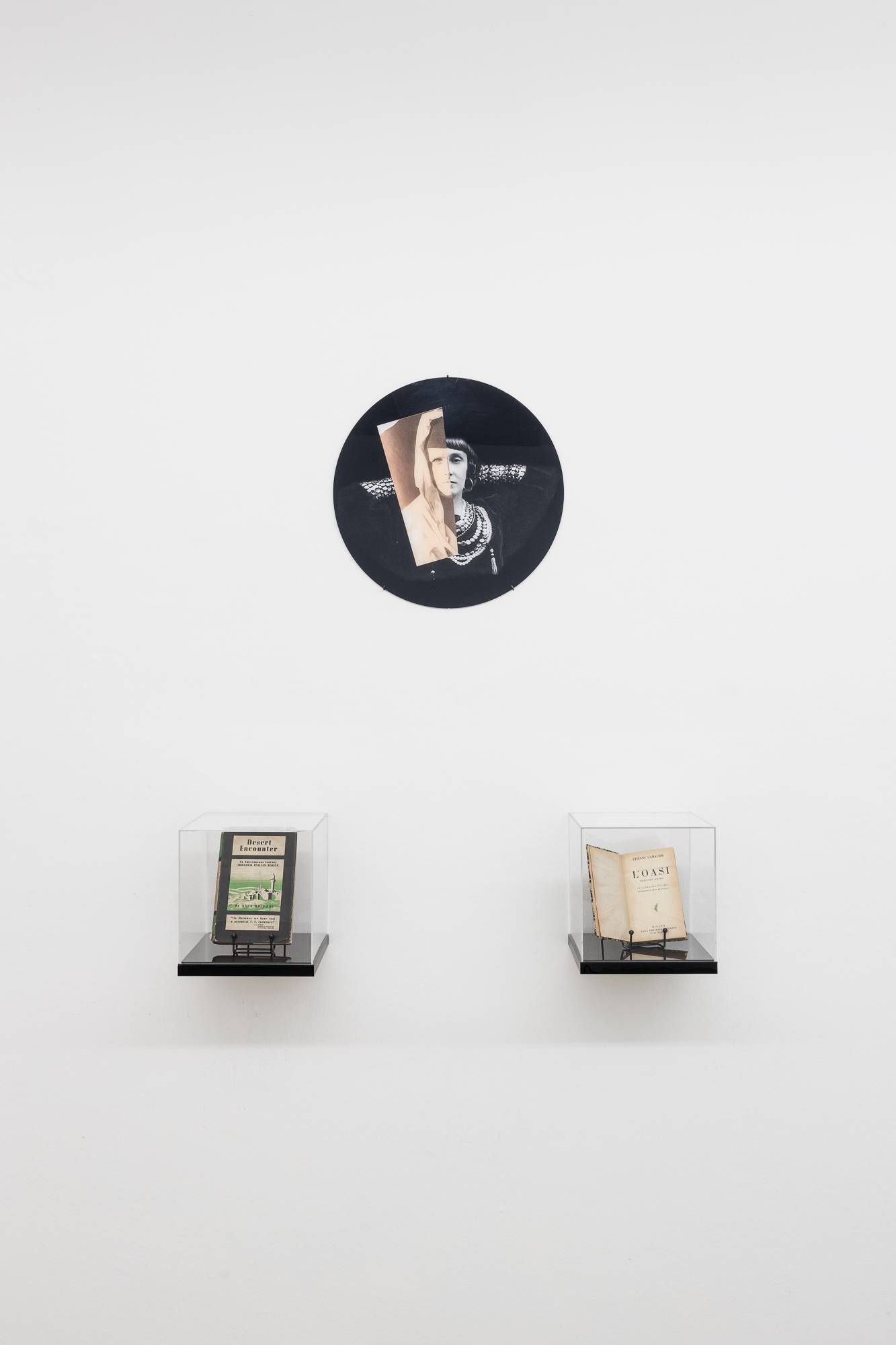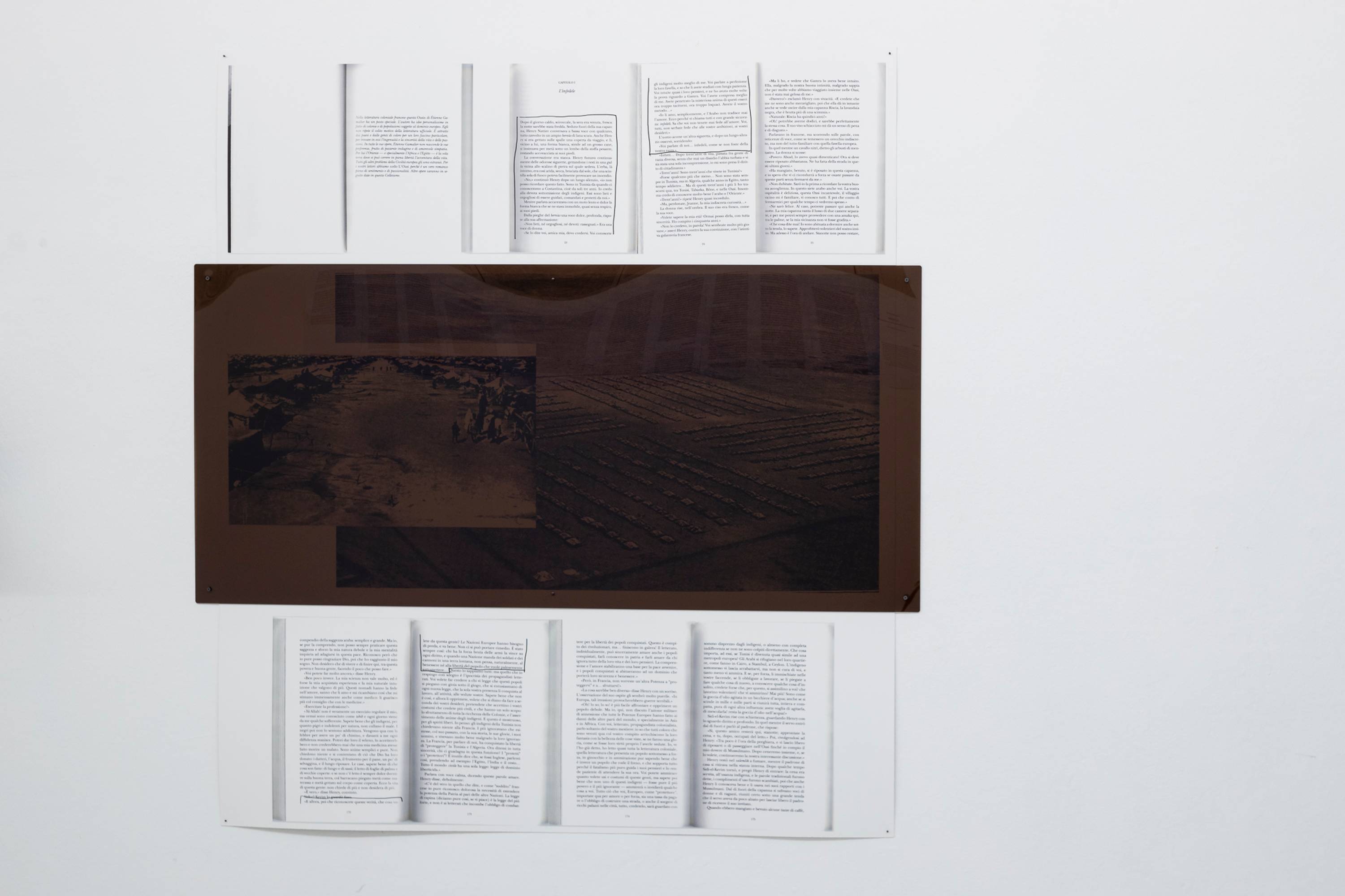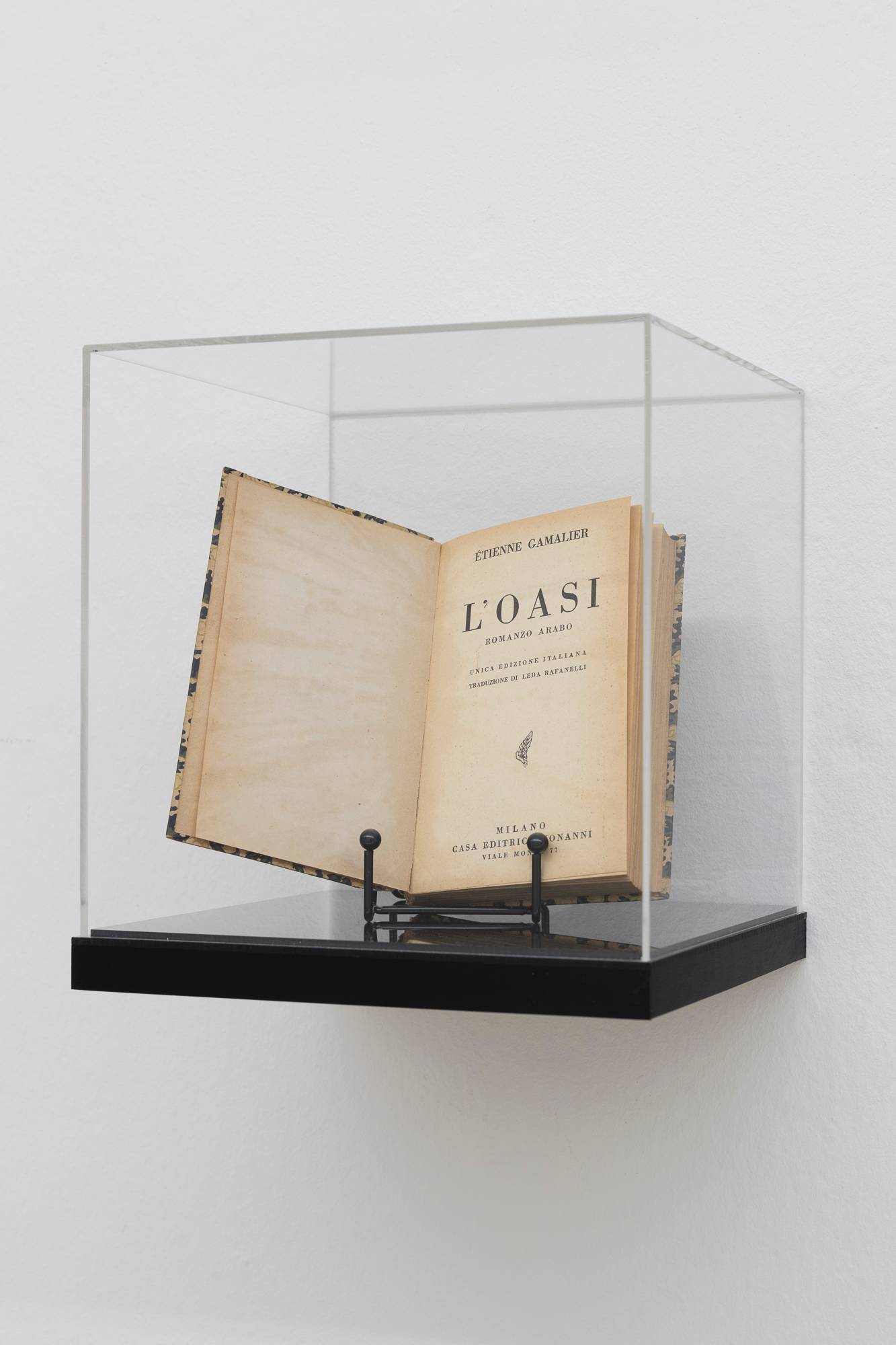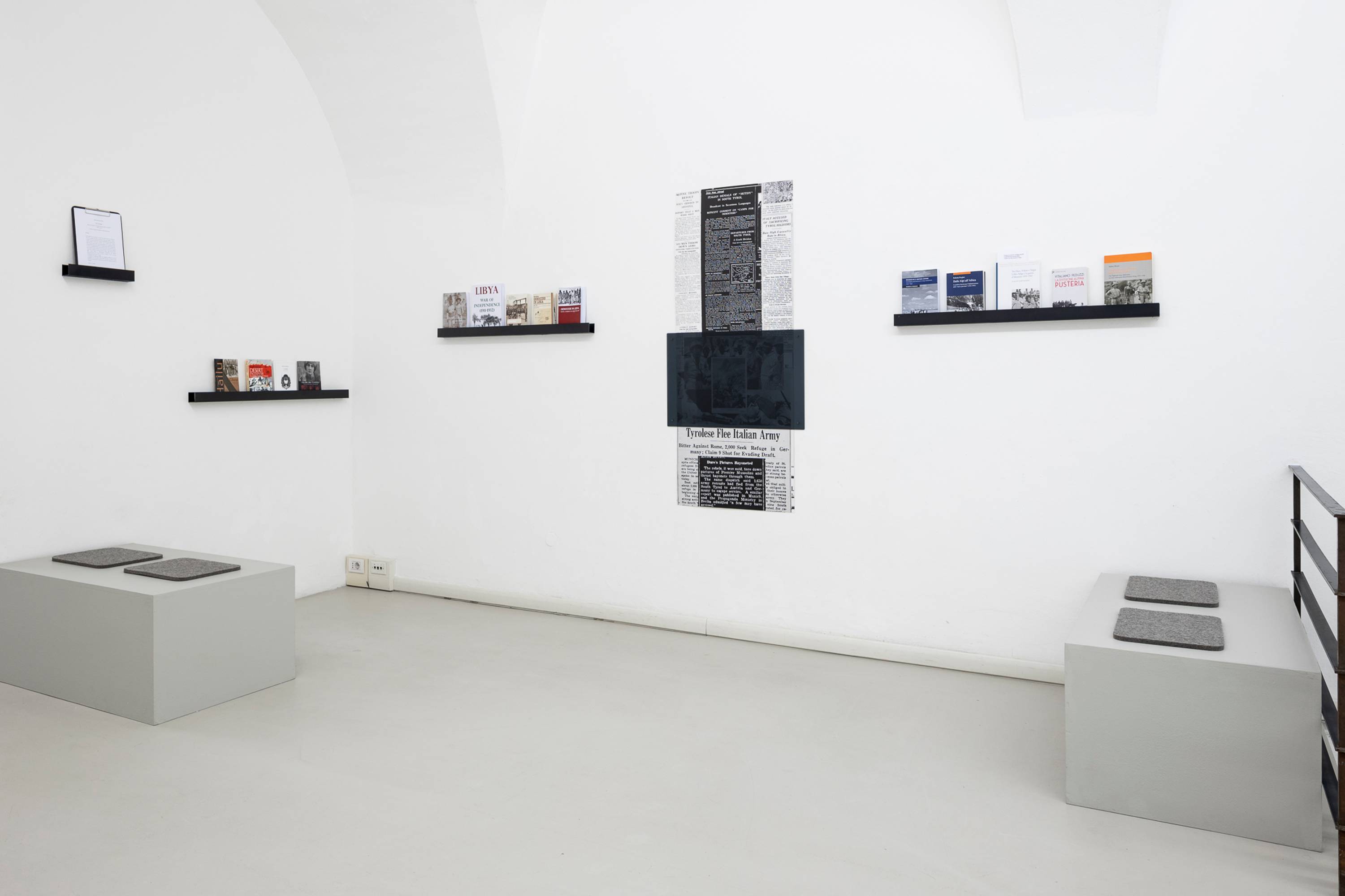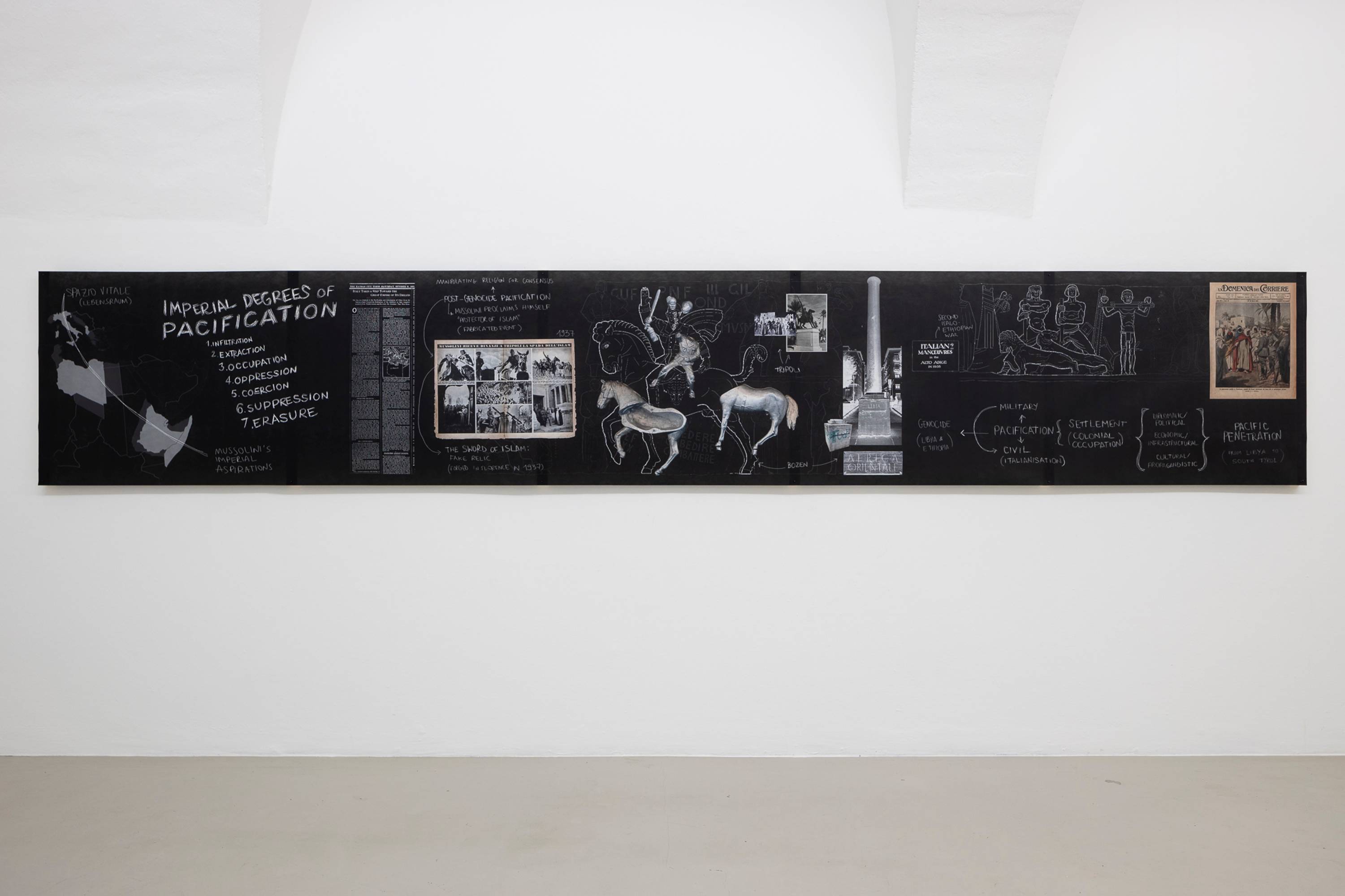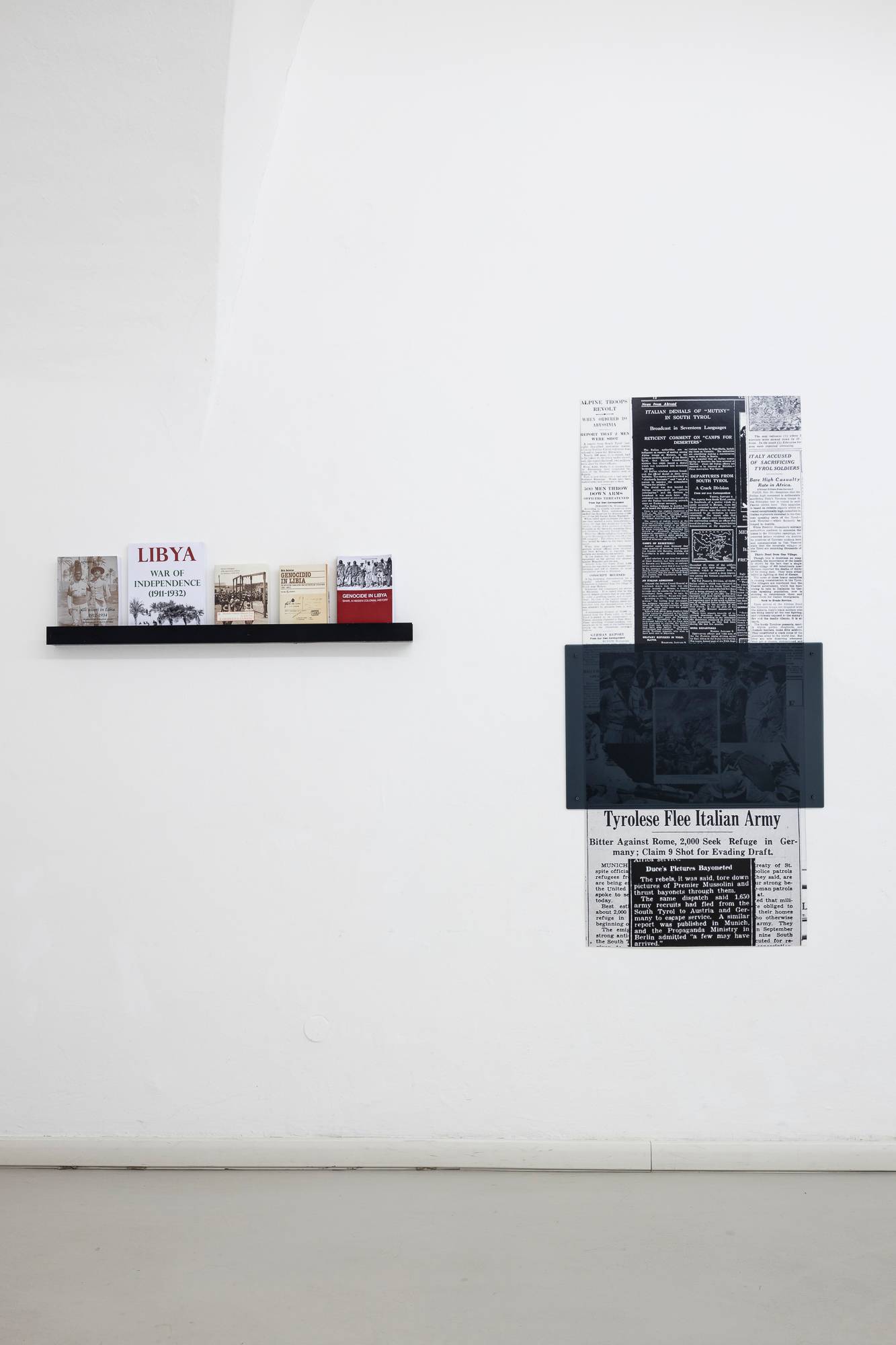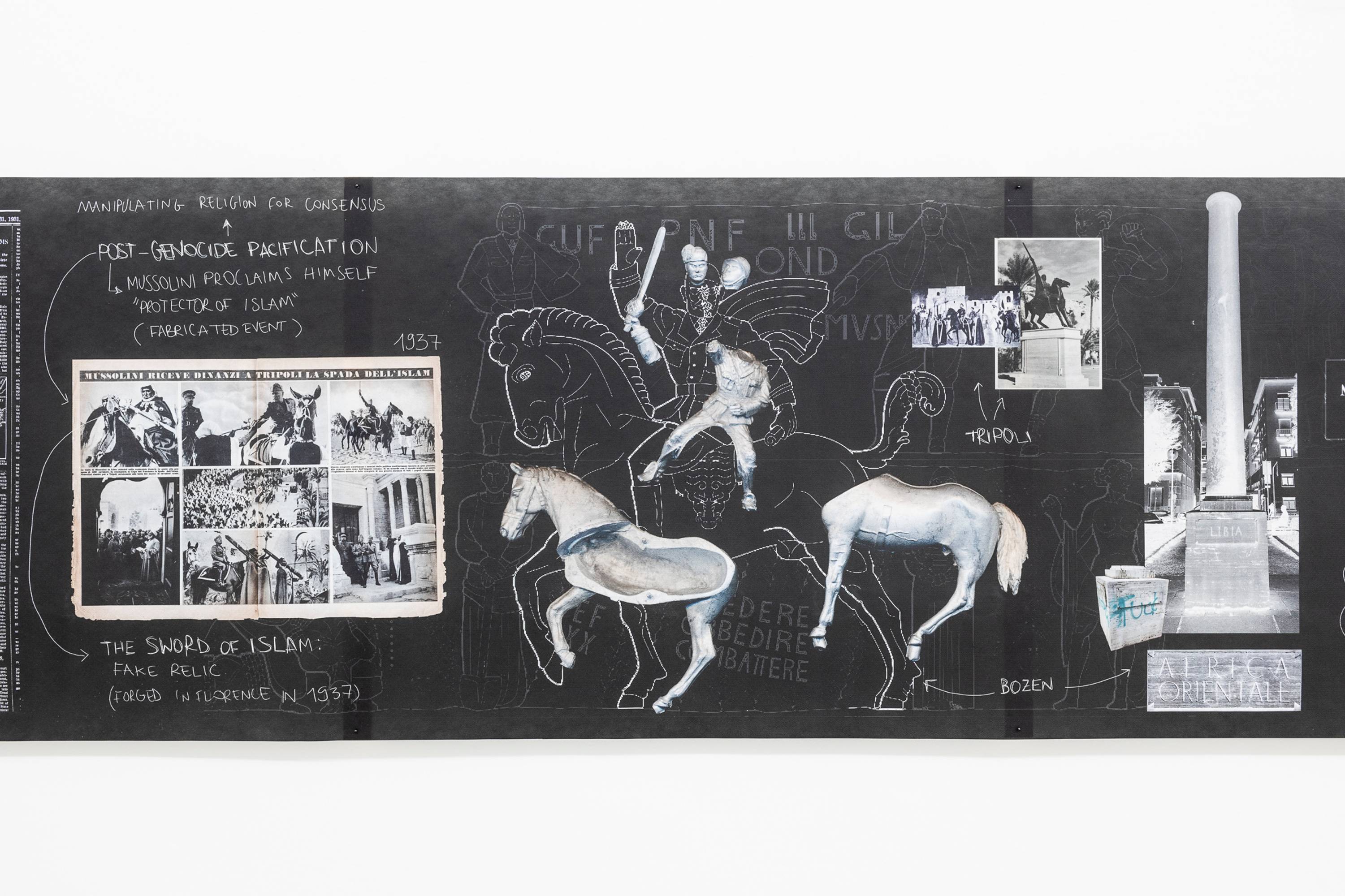UNRULY CONNECTIONS
ALESSANDRA FERRINI
Opening – 13 May, 7pm
With a conversation between artist Alessandra Ferrini and historian Uoldelul Chelati Dirar
Curated by Emanuele Guidi
Alessandra Ferrini has engaged extensively with the Italian archive of coloniality, specifically investigating the obfuscation and distancing strategies that characterize the Italian colonial past In Libya.
Unruly Connections analyses practices of resistance to colonial violence, weaving together three stories of opposition to the “iconographic silence” towards the repression of the resistance movements in Libya at the end of the 1920’s.
Introduced by historian Alessandro Volterra, the term “iconographic silence” refers to general Rodolfo Graziani’s directive that prohibited photographing and circulating any documentation of the brutal repression of Libyan people at the hands of the Italians, which included the use of outlawed chemical weapons and concentration camps. Alessandra Ferrini draws connections between people and literary works that, across different times and locations, challenged the censorship of this genocide.
The exhibition revolves around the willingness to commission the first Italian translation of the novel “The Conscrip”t by Gebreyesus Hailu. Written in 1927, “The Conscript” was transmitted orally because of Italian censorship and was finally published in 1950. It Is the first novel in Tigrinya language and one of the first examples of anti-colonial literature, which has remained virtually unknown as it was translated into English only in 2012. The Italian translation, developed by historian Uoldelul Chelati Dirar, will be presented in the exhibition in four consecutive stages, each one announced through excerpts published in our newsletter: ar/ge kunst will therefore also act as a platform for translations, readings, publishing and in-depth analysis.
Within the exhibition, the translation of “The Conscript” will intersect with the stories of Danish journalist Knud Holmboe (1902 – 1931) and of writer, anarchist, and feminist Leda Rafanelli (1880 – 1971). In addition to this, Unruly Connections will also reflect on the so-called “peaceful penetration”, which historian Roberta Pergher identifies as the settlement tactic connecting internal and external Italian colonialism, with specific regard to South-Tyrol and Libya.
Similarly, “The Conscript” is further compared with instances of forced conscription in South-Tyrol during the occupation of Ethiopia in 1935-36, stressing the complicated relationship between the process of Italianization and the racial hierarchies that characterise European Imperialism.
Through a practice-based approach to historiographic research, Alessandra Ferrini creates a constellation of marginalised characters and stories that emphasize similarities and connections among the peripheries of the Italian colonial empire. The act of editing iconographic materials and texts through different mediums and languages, among which the voice of the artist herself that offers a new potential reading of the resonances between such stories, provides a thoughtful reflection on activist writing and translating, but also on the ethical and political potential of artistic practice.
With the kind support of:
Provincia Autonoma di Bolzano, Ripartizione Cultura
Comune di Bolzano, Ripartizione Cultura
Fondazione Cassa di Risparmio di Bolzano
